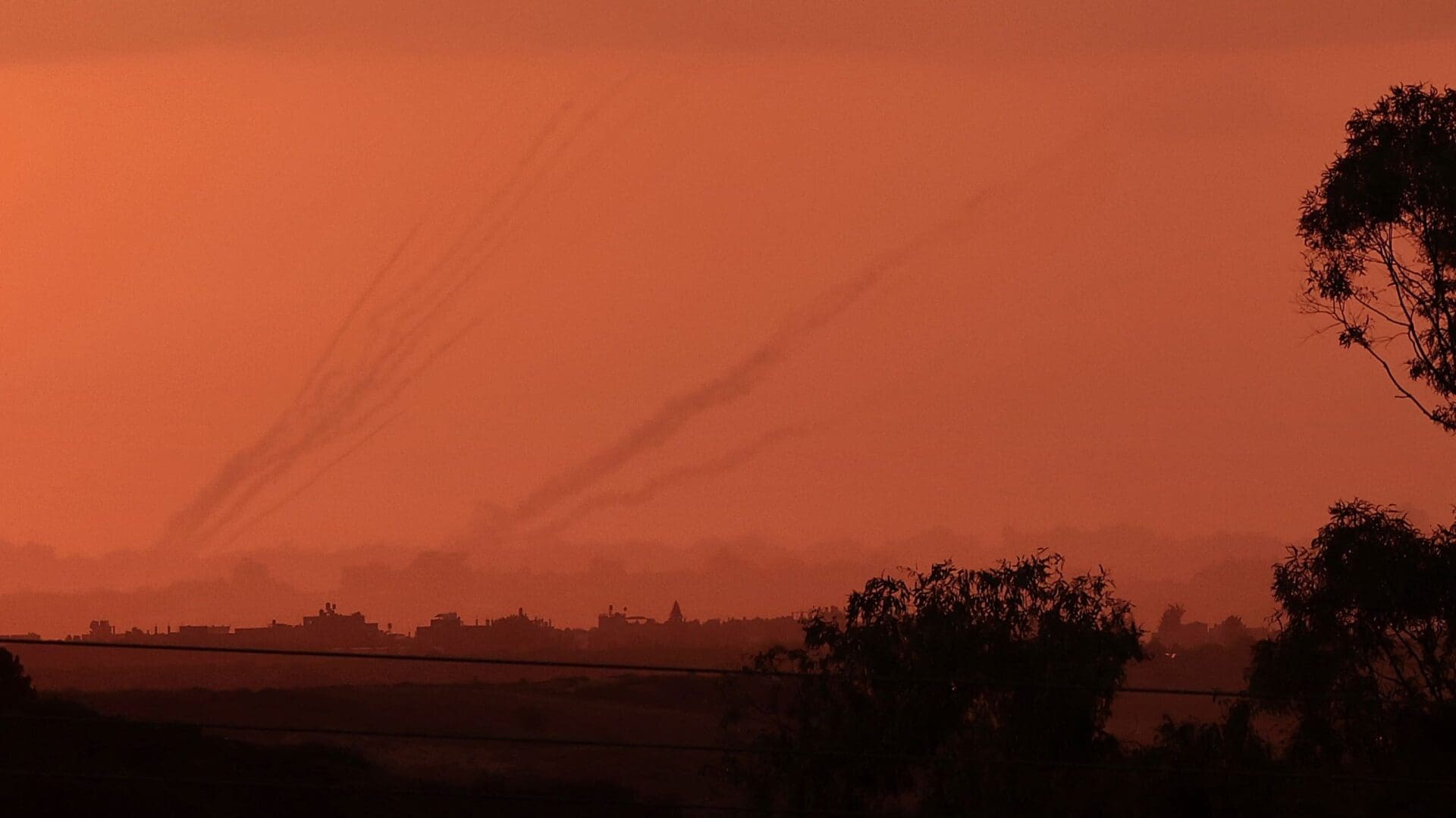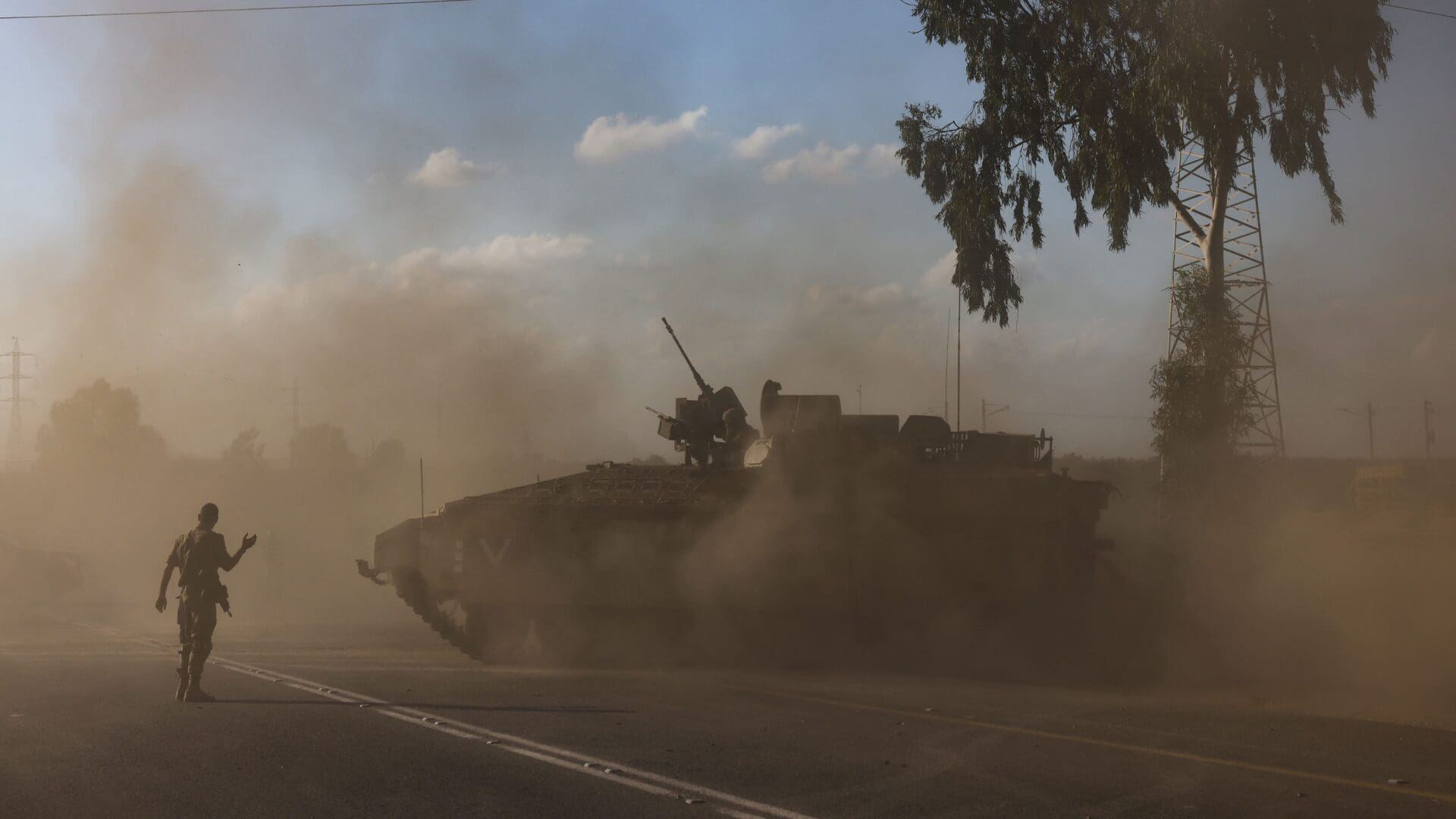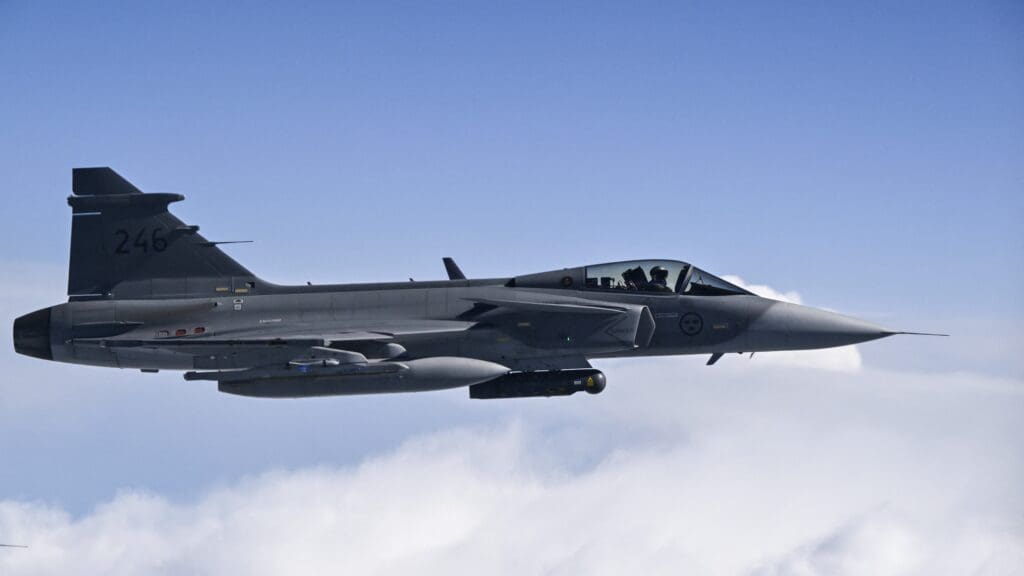Christopher J. Farrell joined Judicial Watch in 1999 as the organization’s Director of Investigations & Research, and has been a member of the Board of Directors since September 2003. Mr Farrell was a Distinguished Military Graduate from Fordham University in New York City, whereupon he accepted a US Army Commission and served as a Military Intelligence Officer, specializing in Counterintelligence and Human Intelligence. He is a specialist in national security matters, specializing in unconventional warfare and terrorism. Following command and staff assignments that included three tours of duty in the Federal Republic of Germany, and one tour at Supreme Headquarters Allied Powers Europe, Mr Farrell returned to civilian life as a contractor to the defence and intelligence communities. He also provided management and training consulting services to non-profit organizations. Hungarian Conservative spoke with Mr Farrell in Budapest, during the European Pro–Israel Summit organized by the Center for Fundamental Rights on 9 October.
***
Your panel discussion was about the Biden administration and the future of the Middle East after the terror attack. It seems that the Biden administration, along with nearly the whole world, is supporting Israel now. What is your opinion on this matter?
This is a very schizophrenic situation: the Biden administration says all the right words and they even dispatched an aircraft carrier battle group, a huge navy force. But that’s largely a publicity stunt. That is not a real military threat to anyone. It’s just sort of a demonstration. But while they say things about protecting Israel,
they’re frantically engaged in an effort to support Iran,
who we know is trying to build a nuclear weapon. We’ve unfrozen money that’s been held. That’s just the six billion dollars people talk about now, but over a period of time they’ve relaxed sanctions, and they’ve permitted more of the Iranian money to be unfrozen from bank accounts. So they’ve created this very permissive atmosphere where the Iranians are emboldened. And as we know—I mean if you read today’s Wall Street Journal article that describes it in detail—the Iranian Revolutionary Guard Corps had been meeting with Hamas in Lebanon for the last few months to plan the attack that took place just three days ago. There’s an old economic formula that you get more of what you subsidize, right? They’re subsidizing Iran and were wondering why they’re acting the way they are and how it threatens Israel. And obviously, it’s now Israel, because they were just attacked three days ago, but it destabilizes the entire Middle East.
Do you think it has something to do with naïveté?
It’s very difficult to tell—there was no logic to it. It’s an ideological obsession. It isn’t that we can sit down and argue and come to a conclusion. They’re obsessed. It’s an ideological fixation they have. And the problem is that it endangers one of our few friends in the region.
How could it happen that a defence force as strong as we thought Israel had could experience a terror attack like the one that occurred?
My background, my misspent youth was as an intelligence officer. So I’m very curious about how this happened because it will be termed an intelligence failure. That’s an expression that’s used over and over and over again for anything that happens that we don’t know about or we can’t predict. So Israel is always proud of itself as having a very sophisticated intelligence apparatus. Not just technical intelligence, things like signals intelligence and communications intercept but also imagery intelligence looking down with drones or satellites. But most importantly, human intelligence, which is just good old-fashioned spying. You find somebody to recruit them, that kind of thing.
So they have this very robust capability. So it’s baffling that they should have seen, heard, detected…
…but evidently, they didn’t.
Yes. But also in the same breath, the United States, our national security agency basically vacuums up every electron, right? You call your grandmother, they know what they are unaware of…So how did they miss it?
I cannot, and I would not guess. But even eight days before the terror attack, National Security Advisor Jake Sullivan said that ‘The Middle East region is quieter today than it has been in two decades’.
What this tells us is that Hamas and the Iranians demonstrated unheard-of and unbelievable operational security in their efforts. They employed a surprisingly low-tech approach.
How could they have built up such a system?
It is mind-boggling because typically, even if you go very low-tech and minimize phone usage or calls, you can still detect activities using imagery. Certain events follow a specific sequence. If they were building rockets, they would still need to move materials from one place to another. People would still assemble the rockets in some garage somewhere. Movement can usually be detected. But in this case, it wasn’t. And when all else fails, if they had recruited a human asset, a spy, someone might inadvertently say something they’re not supposed to. Someone might leak information. People sometimes try to be clever and talk around a subject.

But evidently, none of that happened…
Non of that, which is—I cannot repeat myself enough—mind-boggling. It’s astounding that Hamas’ operational security was so effective and fiercely enforced that there wasn’t any kind of leak. It’s very hard to imagine how they managed that. There will likely be finger-pointing in the future. Whether it’s next year or two years from now, when this entire operation is over, people will look back and ask, ‘How did this happen?’ A commission will probably be formed. The Israelis will scrutinize themselves, trying to figure out who should have seen it, who should have heard it.
There will be finger-pointing.
The other thing that will happen, it’s still too early, but at some point in the near future when the media starts to turn on Israel eventually. They’re going to stop being sympathetic to them. Domestically, internally, there’ll be turmoil within Israel. Because at some point the population’s going to say to the government, ‘how did you let this happen to us?’. There’ll be a resentment that comes up and has to be dealt with very carefully. But the ordinary people who have been told, ‘you’re safe, we’re going to protect you. You have nothing to worry about. We have this all under control’—they count on that. They believe in it. They think, ‘Hey, IDF is strong. It’s great. Mossad (The Institute for Intelligence and Special Operations) is brilliant. They know what they’re doing.’ And they’re going to feel betrayed. And that takes a while, but it is a domestic political situation that will have to be addressed also. It’s another challenge and in fact Hamas and Iran will look to exploit that through propaganda and psychological operations. They will attempt to increase that resentment and use that as a way to destabilize their opponents.
Some people even say that the timing of the attack was well-chosen. Of course, it occurred 50 years after the Yom Kippur War, but it also coincided with the domestic conflicts between Netanyahu’s government and the opposition. How do you perceive the opposition’s reaction? We can observe their efforts to unite.
Sure, initially it’ll be a war unity government, but that’s not sustainable in the long term because—just like I told you—eventually there’s going to be this sense of resentment because at a certain point, once the shock wears off, people are going to say, ‘Hey, How did you let this happen? You’re in charge. What do you mean you didn’t know?’ And that will be exacerbated.
That’ll be fuelled and aggravated in an effort to create more turmoil
by Iran, by Hamas, by anyone who’s in opposition to them, to destabilize the government which creates even more problems because a ground assault and occupation of Gaza is enormously difficult and very costly and a huge burden on the army; it is a very tough operation to conduct.
Why?
It’s densely populated, two million people packed into a tight urban area, and every doorway, every building is a car bomb and a sniper and it takes its toll on the military to sustain that kind of operation for a long time. So this is a very complicated, very difficult situation.
It’s peculiar because when such a significant event occurs, we usually have some understanding of what happened. So, what was the reason behind this? Now, it seems as though we have no information about that Saturday morning. We don’t even know who the terrorists are, who is attacking, how many of them there are, and where they are located.
And this brings us back to the Iranians once again. It was an incredibly intricate operation. Even though reading a newspaper article or watching 20 minutes of television might make it seem easy, trust me, synchronizing all these actions is far from easy. The rocket barrage with the ground attack, with guys on paragliders coming in, right? There were even, I guess, small boats that were landed. You just don’t do that, it’s not as easy as going shopping to the store—it’s a very complex thing to synchronize. I also read a report that discussed that at one particular military site that in conjunction with the ground attack, they jammed Hamas, jammed the communications of the Israeli Defence Forces at that outpost. Again, very sophisticated. You just don’t go out and channel encrypted communications. So this has been thought through and planned and strategized. And that shows the hand of the Iranians as well.
How do you envision the future of this war? We’ve witnessed the Israeli Defence Minister ordering a complete siege on Gaza—no electricity, no fuel, no food, no water. What will this war be like?
It’s hell. I mean,
urban combat in a densely populated area is hell on Earth.
Firstly, it’s difficult to execute. Moreover, it’s even harder to sustain. Furthermore, putting yourself in a position where once you’re engaged, you’re committed. You can’t just say ‘Oh no, never mind.’ Any withdrawal or consolidation will be viewed as a defeat.

Can Israel successfully end this war? If so, within what time frame can we even consider that?
I don’t have a good answer for you. I mean, I wish I could say, ‘Well, in six months, it’ll all be over…’ Another aspect of this is the ideology. So, it’s like battling terrorism. Who do you attack? It’s an idea. It’s not strictly conventional warfare in the sense that, ‘Well, I invade your country, capture your capital, and you surrender, and that’s the end of it.’ But that’s kind of clean. It’s a neat, organized way, ideologically driven in large part by religion. There’s no easy solution. There’s no quick fix to this. I wish I had a simple answer, but I don’t.
In the panel discussion some argued that even though now most countries stand with Israel, they would not be surprised if in two or three weeks Hungary would be standing alone.
I think that’s a reasonable estimate. If you look through foreign reaction, some countries say ‘oh it’s horrible’ and they sort of say the right things but you don’t know how long they’re going to say that. Others sort of take this neutral position of ‘there should be no violence’. Okay, well that doesn’t really address the issue. And then there are other people who say ‘hooray for Hamas or Palestine’. So it’s really a question of—as you brought up really in the formulation of your question—who has staying power, who has the ability to be consistent and be consistent to maintain the same stance, whether it’s two weeks or two years. We’ll see who stays and who says, ‘Well, too hard, too difficult, too complicated’, and leaves.
Experts and politicians say that these must be challenging times for Netanyahu: he either has to resign or take strong action against the terrorists. How do you assess his chances? Will he be strong enough?
Initially, in the next few weeks, I think he’ll have a relatively free hand to take whatever action he deems necessary. However, this goodwill or willingness to cooperate becomes increasingly fragile as time goes on. Eventually, it transitions from fragility to disintegration, literally falling apart. The strength, authority, and power he currently holds will not be the same in a couple of months. It definitely won’t be the same six months from now. So it’s a matter of acting now—act decisively and act swiftly—because he must utilize all available resources to achieve his objectives now. If he thinks, ‘I’ll do that in three months,’ he may not have the reserves or the power to actually follow through with his plans. It’s an ‘act now, act decisively, act swiftly’ kind of situation.
What could be the outcome?
There’s all kinds of things that could come out of this that we were not anticipating.
So Hezbollah could jump in and attack Israel from the north. The West Bank could go on fire, so
it could be Israel being hit from three sides at once.
Once you start this, you don’t know where it’s going to end. It’s kind of like a nuclear reactor. Once it starts the reactivity of it, you can’t always predict which way it comes out. I wish I could. I mean, I wish I had better answers or I had a clearer vision, but to say that, ‘oh, it’ll just be Israel going into Gaza’ period—might just be wishful thinking. Well, we hope it only stays there…
And what do you think would happen a year from now if Trump were to be elected or if someone from the Republican Party were to be elected? We all hope, of course, that it won’t last that long, but still…the question remains whether it would result in a different outcome.
Yeah. This is the second time now. If Trump had been the president, Russia would never have invaded Ukraine; it never would have happened. And if Trump were the president now, Hamas and Iran wouldn’t be doing what they’re doing. It’s just a fact. Just look at the history in Ukraine in 2014 when Russia grabs Crimea. What did Obama and Biden do? Nothing. They sent a mean letter. They did nothing. Throughout Trump’s presidency, Putin didn’t do anything. I’ve spoken to Trump about that. And trust me, he knew Putin would not do anything. But they detected weakness. The Russians detected weakness. Iran and Hamas detected weakness and this kind of lack of will and vision on the part of the Biden administration…and they took advantage of it.
Related articles:








